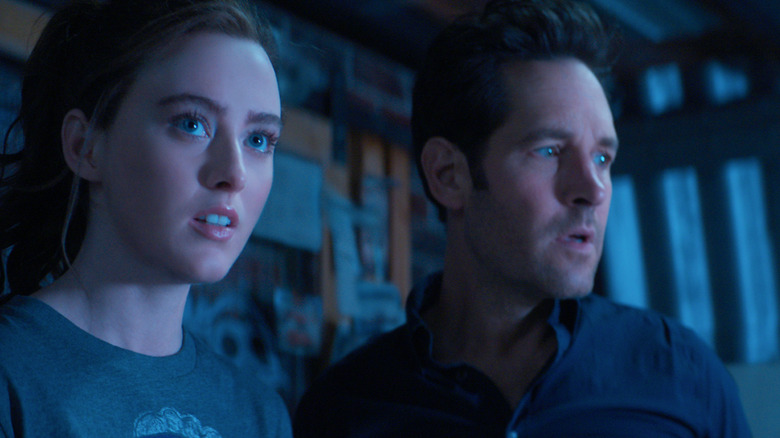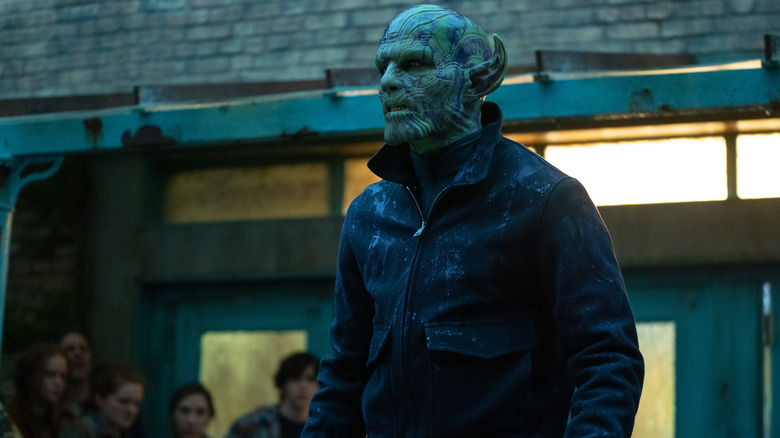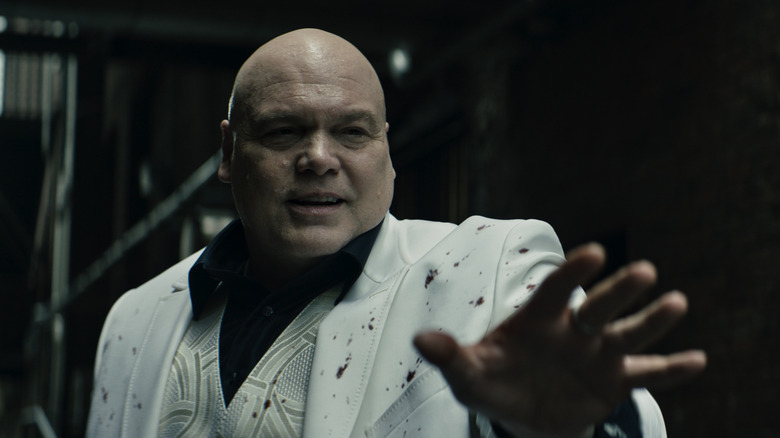2024 Is Marvel's Best Opportunity To Fix The MCU Before It's Too Late
Like Thanos himself, it was inevitable the Marvel Cinematic Universe would eventually cease to be the unstoppable juggernaut it became at the box office over the course of the Infinity Saga. What it could've avoided, however, was becoming the piping-hot mess it's descended into over the course of Phase 4 and the first part of Phase 5. One can no longer dismiss the doom-sayers as a bunch of fun-hating grouches, either. Between the franchise's diminishing ticket sales, its increasingly middling critical reactions, and the snafu that was the MCU's Disney+ streaming production process, it's apparent that something has gone disastrously wrong. But anyone can point out a problem once it's glaringly obvious. The question now becomes, should we all agree to simply allow the MCU to die, or is there still space for Marvel to fix things?
I say yes ... to the latter. Now that the writers' and actors' guilds have triumphed in their own "Avengers: Endgame"-style fight with the Alliance of Motion Picture and Television Producers (I mean, I didn't just not compare the AMPTP to a comic book supervillain), Disney has overhauled its release slate for the next two years, with "Deadpool 3" currently the only MCU film slated to arrive in 2024. And that's a good thing! After three years of non-stop Disney+ series of varying quality and a slapdash collection of films, Marvel could really use this chance to slow down, shift to a quality-over-quantity approach, and take the time to ensure that every new MCU title feels like something special and not merely more (I hate what the word has come to represent too, but it's applicable here) ... content.
To understand the way forward, though, we first need to talk about how the MCU became the biggest obstacle in its path to begin with.
What went wrong
While the MCU was in no way the first cinematic universe, starting out there was something genuinely innovative about the way it told an interconnected story through multiple films and a (mostly tangential) series of TV shows. This also made its flaws easier to swallow, from the often drab color grading to the way that the MCU's films ostensibly occupy different genres yet tend to feel more or less the same. By the time its Infinity Saga culminated with "Endgame," it was a perfect opportunity for Marvel Studios to take a long break and figure out how to fully evolve the franchise going forward ... which, as we all know, didn't happen.
The "why" of what went wrong is no mystery. With Disney's desire to keep its shareholders happy only intensified by the effects of COVID-19, there was a glut of MCU releases at a time when Marvel Studios should have been recharging its batteries and allowing viewers to grow nostalgic for the property. But it wasn't just that. The lack of clear, careful planning showed in Phase 4, which felt directionless in a way that previous phases hadn't. The rush to develop so many shows and films in so little time also took its toll creatively on individual projects, resulting in shooting scripts that needed substantial revisions, massive reshoots that projects never recovered from, and Marvel's mistreated VFX artists having to prioritize certain projects over others just to keep up with the demand. All the while, Marvel was churning out TV series without the fundamental components of successful television (like, you know, showrunners).
What's frustrating is how avoidable these issues were, even when accounting for COVID-19's unprecedented impact. But at the same time, that's also why there's reason to remain hopeful the MCU may yet course-correct.
Cautious optimism
The days are gone when Marvel could get away with fixing everything "in post" or count on audiences watching every piece of MCU media. Even if superhero projects hadn't already dwindled in popularity, the franchise is too big and sprawling. So, rather than fight against the tide, the House of Ideas would be better off spending 2024 finding a new way forward. That means slowing down, scrapping projects that only exist to fulfill a mandate, upping quality control, addressing its Jonathan Majors problem, and maybe even (dare it be said!) using the goodwill it still has to take some risks and try bending the MCU to fit the visions of individual artists for a change.
If you'll forgive me for knocking on wood (actually, sorry, that's Groot), there are reasons to remain cautiously optimistic. For one, "Deadpool 3" will be very much its own weird thing (like the previous "Deadpool" films, love 'em or not) and, as such, can set a precedent for MCU projects to embrace more than a singular tone and style. That goes double for "Echo," the first MCU Disney+ show to receive a TV-MA rating as well as the launchpad for a new banner dedicated to more experimental, standalone stories. What's more, all MCU series will have basic things like showrunners from hereon out, and with its VFX artists' efforts to unionize undoubtedly being bolstered by the writers' and actors' strikes, Marvel may have to start giving them the time and support they need and deserve to do their best work.
"Trying to fix what's broken is hard. Hope is hard," to quote the God of Mischief himself from "Loki" season 2 (itself a surprisingly satisfying offering that portends well for the MCU's future). But what are superhero stories for, if not inspiring hope in the darkest of times?


